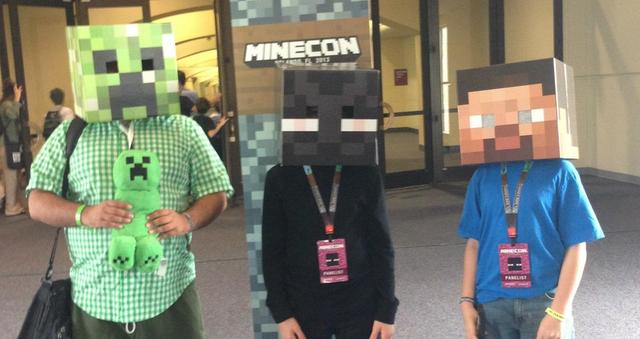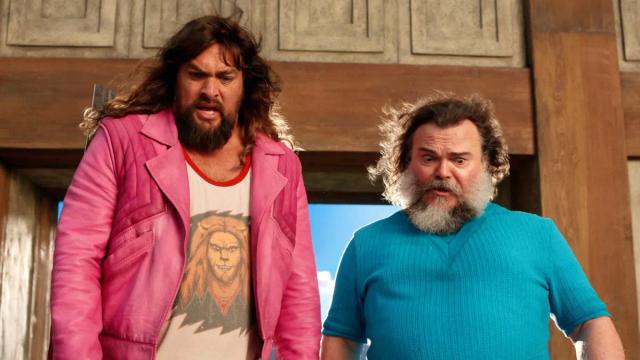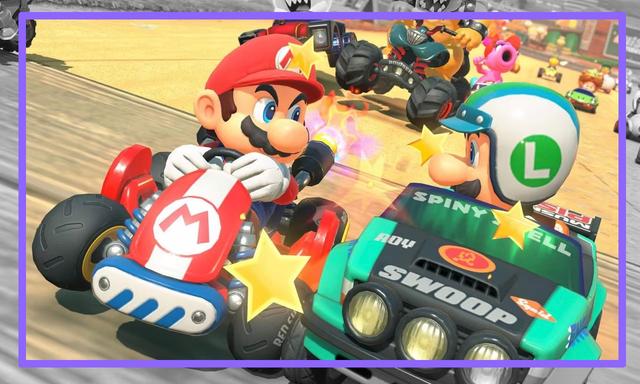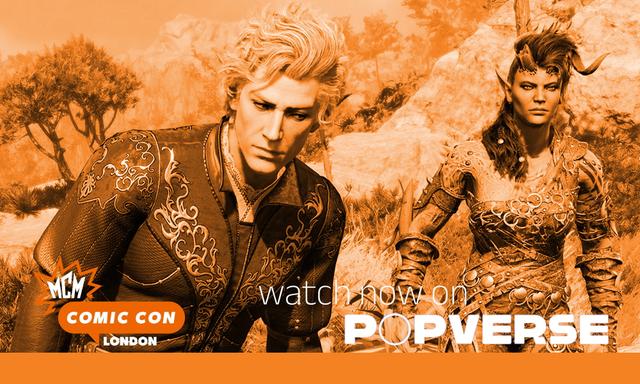If you click on a link and make a purchase we may receive a small commission. Read our editorial policy.
End of an era: The quiet death of Marvel and DC's linewide branding
Are Marvel's Fresh Start and DC's Infinite Frontier the last we'll see of line-wide initiatives?

The first ongoing comic books I ever collected, the first entries on a pull list that has only grown more swollen, were a part of DC's New 52, a line-wide reboot initiative launched in September 2011. Technically, I had been inside a comic shop before, but the unpleasant experience was like trying to navigate a friend's house where all the rooms had been suddenly rearranged, echoes of the familiar mixed with aimless bafflement at what I was seeing (I mean I think I like Flash, but why on Earth-2 is this Flash comic entirely about Boomerang?).
With the 'New 52,' things were different, as the marketing assured me they would be, and I could walk in and start fresh with first issues of as many DC Universe characters as I thought I might enjoy. So I walked into that comic shop with far more confidence than prior attempts, and I left with Batman, Wonder Woman, All-Star Western, Animal Man, Swamp Thing, and Action Comics, and I haven't stopped adding titles since.
As a relative newcomer to the medium at the time, I only had a vague sense of the history the 'New 52' was upending, and what it meant for longtime fans and legacy series numbering that dating back to 1938. The decision to reboot the entire universe for a short-term fix can absolutely be debated and will be well into the future.
What isn't arguable is this: The branding worked. The 'New 52' made waves then, and most importantly, continues to resonate with readers over a decade later. The perceived success of relaunching an entire line of interconnected superhero continuity under a catchy banner has increased in frequency ever since, with 2012's 'Marvel NOW!' paving the way for a decade full of relaunches. Any fan reading during the past decade-plus can likely tie their collecting to a particular era, as well as a particular affinity (or distaste!) for what that era represents.

While it's not the first of its kind (pre-2011 examples include 'Heroes Reborn,' 'Marvel Knights,' 'One Year Later,' 'The Heroic Age,' etc), the totality of the 'New 52' came to define the past decade of DC and Marvel eras, and comics fans continue to live through that influence during the DC's Infinite Frontier and Marvel's Fresh Start, the two companies' most recent linewide brandings.
The question, though, is for how much longer? The impact of branded lines of comics is waning considerably, and the 'Era of Eras' may be coming to a close sooner than we think.
The successes of branded eras
Since the launch of the 'New 52,' DC rebranded three times ('DC You,' 'DC Rebirth,' 'Infinite Frontier'), and since 'Marvel NOW!', Marvel rebranded four times ('All-New All-Different', 'Marvel NOW 2.0', 'Marvel Legacy', and 'Fresh Start'). If it's surprising to see Marvel 'only' rebranded one more time than DC, that's likely because it became the publisher who cried "new era" after Marvel NOW!, to the detriment of fan recall, rebooting lineup cards four times in four years between 2015 and 2018. On the other hand, DC has been less cavalier with their eras, with 2015's soft-rebrand of 'DC You' followed by 2016's 'Rebirth' and 2021's 'Infinite Frontier.'
To gauge the impact of these various eras, I'm first leveraging Google Trends data to reflect searcher interest. While it should be noted that Google Trends data is wildly imperfect (By day I work in search engine marketing, trust me, I know!), it offers directional insight into the performance of these marketing initiatives, at least as it pertains to fan interest and recollection.

Unsurprisingly, there's been more search interest in DC's 'New 52' than any initiative since 2011. What is less predictable, though, is how long searcher interest in the 'New 52' has resonated. There are only two months since 2011 - May and June 2016, the announcement and launch of DC's 'Rebirth' - where the 'New 52' was not the most searched era among both Marvel and DC.
A takeaway here is the 'New 52' is a tremendous outlier. It's essential to consider the story and narrative tied to the rebrand. The 'New 52' didn't simply catch on because it's a perfectly focus-group keyphrase - it came attached to the historical news that after 73 years, DC Comics was fully rebooting its continuity. In addition to that built-in press and marketing, that concept also promises a degree of accessibility that is simply rare in a medium that celebrates decades-long continuity.
In short, much like the Chicago Cubs breaking their World Series drought in 2016, you can really only ever pull a 'New 52' once. DC's 'Rebirth' marked a significant ending of that 'New 52,' after five years, and a return to the aforementioned history. The relative success and interest in 'Rebirth,' then, is boosted by its status as the mirror dimension inverse of the 2011 initiative.
'Marvel NOW!' is the House of Ideas' most searched era, but you'll see it pales in comparison to both the 'New 52' and 'Rebirth.' Simply put, 'Marvel NOW!' is far less historical, more of a piece with continuing a shared continuous narrative. Although they've played with variations like 'Heroes Reborn' and the Ultimate Universe, Marvel Comics has never actually full-on rebooted its continuity (although should sales get dire enough *Activate Lin-Manuel Miranda Voice* "Just you wait, Just you wait!"). As such, it's a particularly fascinating case study of successful Marvel branding, where the drivers are primarily tied to series reboots, creative pedigree, and an immediate and lasting reputation for quality.
Fresh starts and expiration dates
With the exception of the aforementioned DC 'Rebirth,' each subsequent branded era for DC and Marvel has resonated less and less, to the point that the respective publishers' most recent two eras are mere blips on the trendline. The peak of Marvel's 'Fresh Start' is 3.5x less searched than the previous year's 'Marvel Legacy' peaks, and DC's 'Infinite Frontier' peaked at a whopping 18x less than 'Rebirth.' Likewise, the duration of interest in the eras has shortened drastically, with the most optimistic interpretations of the data indicating a 6-month bump in interest for both 'Fresh Start' and 'Infinite Frontier.'
To be clear, these metrics are not reflections of quality or sales. But when you look at the long reach of Google to represent one aspect of human curiosity, comic fans are simply not connecting with these initiatives anywhere near the degree they did at the start of the '10s. In fact, searchers in 2022 are 17x more likely to be looking for the 'New 52' than DC's 'Infinite Frontier,' and 2-3x more likely to be looking for 'Marvel NOW!' than Marvel 'Fresh Start.'


So does this mean the death of the branded era? After all, Marvel 'Fresh Start' is four years old, making it the longest-running Marvel era of this time period. In theory, we could be getting ready for a rebrand any moment now, lest 'Fresh Start' becomes a Stale Middle Age.
The elephant in the data room is sales performance, given that digital social trends might not line up with purchases. According to John Jackson Miller, curator at Comichron, "We do know that there have been occasions where reboots have meant immediate improvements; 'Heroes Reborn' in 1996 provided a major boost to its component titles, and DC’s 'New 52' and 'Rebirth' both sparked strong sales."
Unfortunately, distribution shakeups and the publisher's evolving relationships with Diamond in recent years make it challenging to paint a clear sales picture for 'Infinite Frontier' and 'Fresh Start.'
"We know that comics sales are flourishing in the comeback from the pandemic, but it’s hard to hang that improvement on a particular editorial move; it’s more a general increase in demand that’s helped everything," says Miller.
The comics sales history of rebooted eras is not all roses, though. According to Miller, "There’s also evidence that frequency dulls the impact. 'Heroes' Return in 1997 provided only a very limited boost, after which sales quickly reverted to the track they were on before. Likewise, 2017, the year that followed 'Rebirth,' was a down one for the market in general."

Admittedly, there's little harm in cataloging an era, but for DC and Marvel, the past decade's performance should certainly mean the death of expectations that big line-wide relaunch announcements have inherent value. Without purpose, a clear narrative, and a genuine belief from audiences that the era will offer accessibility and direction, the naming doesn't promise anything other than an increasingly short-term high.
As Miller says, "It seems logical that there might be diminishing returns if rebrandings happen too frequently. Like first issues in general, they’re a tool that can work, but are better used judiciously."
I anticipate we'll see a new era from Marvel, conceivably even by the end of 2022 (How long can you call something a 'Fresh Start' before the irony consumes you?), and credit where it's due, the publisher does appear to have learned its lesson from relaunching too frequently. Beyond that, the landscape should shift once more, perhaps in favor of imprints (DC Black Label) and internal fiefdoms (Marvel's X-Office).
Welcome to the new era.
Follow Popverse for upcoming event coverage and news
Find out how we conduct our review by reading our review policy
Let Popverse be your tour guide through the wilderness of pop culture
Sign in and let us help you find your new favorite thing.
















Comments
Want to join the discussion? Please activate your account first.
Visit Reedpop ID if you need to resend the confirmation email.